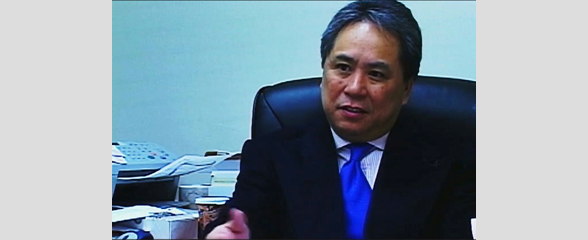Motion pictures

2008.040.020 Oral History Interview with Paul Kazee January 6, 2008
Paul Kazee, one of the founders and former director of the organization Subway Cinema, played a significant role in showcasing Asian films to the New York public after the closing of Music Palace, a theater that specialized in showing Hong Kong films. Starting in 2000, Subway Cinema spent its first two years organizing events centered on dispelling what the group perceived as a misconception that Hong Kong cinema was degenerating and uninteresting. After gaining strategic connections and networking with NYU students, Subway Cinema achieved higher attendance which allowed them to began expanding to other Asian cultural films. The highlight of the organization’s work is its annual New York Asian Film Festival. The Festival generally lasts for two weeks and attracts large crowds of both Asian and non-Asian audiences, mostly comprised of students.
In terms of changes that have occurred in Chinatown, Kazee explains that he, along with numerous others, feel it is unnecessary to visit Chinatown now since much of the shopping available in Chinatown is now available elsewhere, particularly online. Kazee also reminisces about the pagoda-inspired phone booths, morning Tai-chi exercises in the local parks, and small local Asian video stores, all of which have gone by the wayside. Finally, he also briefly reflects on his feels towards gentrification, describing how he eventually realized how he himself contributed to the process of change in New York’s neighborhoods.

2014.036.013 Oral History Interview with Tony Wong April 1, 2004
Tony Wong, General Manager at Sino Television, was born and raised in Hong Kong. He immigrated to the United States to study broadcasting at both the undergraduate and graduate level. Tony recalls his initial struggles as a student coming from a poor economic background and how he eventually moved to New York City, receiving a job offer at NBC right after graduation. During his time at NBC and in Sino TV as a part-timer, Tony would learn a myriad of skills including production, directing, and programming. Tony would eventually move on to work at different companies before returning to Sino TV as a full-time employee. He would describe Sino TV’s area of operation, and programming variety, and emphasize their stance on being politically and culturally neutral regarding the different Chinese communities and political views. Later in the interview, Tony shares his thoughts on Chinese unity and stereotypical “passiveness†and observes a change in this following the 9/11 attacks. Tony notes that following the 9/11 attack, the Chinese community banded together to help local recovery and rescue operations and fundraised 1.5 million dollars for the World Trade Center Fund and the American Red Cross. He also highlights other efforts to create programs that promoted Chinese activism for not only disasters but also for political purposes.